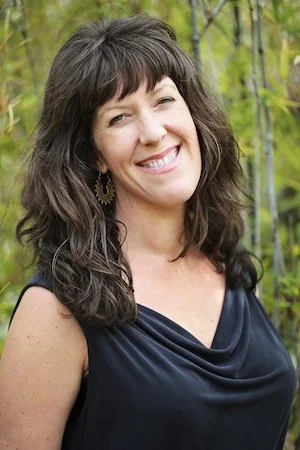
Healing from Complex Trauma is Possible.
Our trauma-informed therapists can help!
Complex PTSD (C-PTSD) can feel like endless cycles of nervous system dysregulation, leaving you constantly disconnected from yourself and others, and overwhelmed by intense emotions that seem to come out of nowhere. You might feel 'broken', and stuck in self-sabotaging patterns that you just can't seem to shake.
The truth is: C-PTSD is a 'normal' response to stressful, overwhelming, and traumatic experiences.
It can develop from obvious trauma, but also from the subtle wounds of not receiving the nurturing and support you needed to thrive.
No matter what C-PTSD symptoms you're struggling with right now, I want you to know that your symptoms aren't just "in your head" - they're signaling to you, and they're here for a reason: It's time to heal.
If you're ready to heal these deep wounds and finally feel at home in your body and your life, we’d love to support you. We offer holistic psychotherapy and counseling that honors the mind, body and spirit connection. Click below to book a free consultation call to learn more about how we can help.
C-PTSD Therapy in San Anselmo, El Dorado Hills, Berkeley + Online
‘Safety isn't the absence of threat. It's the presence of connection.’ - Bonnie Badenoch
Feeling chronically activated, on edge, or stuck in 'survival mode'
Intense emotional reactions that feel overwhelming and out of your control
Difficulty trusting others or feeling safe in relationships
A harsh inner critic
Emotional flashbacks that hijack your nervous system
People-pleasing
Signs + Symptoms of C-PTSD:
Feeling disconnected from your body, your heart, and your true self
Feeling hopeless that you’re 'broken'
Problems with sleep, digestion, or unexplained health symptoms
Difficulty setting and maintaining boundaries
Unfulfilling or toxic relationships
Fear of abandonment
Struggling with self-care
Finding it difficult to identify your own needs
Unable to experience joy or pleasure
Chronic anxiety, depression, or both
Using work, achievement, or busyness to avoid emotional pain
Unrelenting perfectionism

Common Types of C-PTSD
Childhood C-PTSD
When trauma or neglect occurs during your developmental years, it shapes how you see yourself, others, and the world. This might come from outright abuse, but often stems from subtle experiences like emotional neglect, having to be the "perfect" child, or growing up with parents who couldn't meet your emotional needs.
Relational C-PTSD
This type develops from traumatic relationship patterns, whether in childhood or adulthood. You might find yourself repeating painful relationship dynamics, struggling to trust, or oscillating between craving connection and fearing intimacy. This often shows up as difficulty maintaining healthy boundaries or attracting partners who can't meet your emotional needs.
Developmental C-PTSD
When your early environment didn't provide the safety and nurturing needed for healthy development, you might struggle with a deep sense of unworthiness or shame. This type often manifests as difficulty knowing who you are, what you want, or how to advocate for your needs.
Benefits of C-PTSD Therapy
When you work with one of our trauma-informed therapists, we can help you:
Learn how to regulate your nervous system so you can feel safe in your body
Transform overwhelming emotional reactions into manageable experiences you can navigate with confidence
Develop a compassionate, loving relationship with yourself
Create authentic relationships that feel safe, nurturing and fulfilling
Learn to trust yourself and others in a way that feels grounded and real
Discover and honor your true needs, desires, and boundaries without guilt or shame
Release old trauma patterns stored in your body, so you can finally feel present and grounded
Access your natural capacity for joy, pleasure, and aliveness
Find freedom from people-pleasing and perfectionism
Reconnect with your intuition and higher self
Understand your trauma responses with compassion, recognizing how they helped you survive
Experience what it feels like to truly be at home in your body and your life
Types of Therapy for C-PTSD
-

Somatic Therapy for C-PTSD
Access and release trauma held in your body through gentle, body-based inquiry and practices. By learning to listen to your body's wisdom and regulate your nervous system, you can transform trauma patterns into newfound safety and ease. -

Cognitive Behavioral Therapy (CBT) for C-PTSD
Transform trauma-based thought patterns and develop practical tools for managing triggers and emotional overwhelm. CBT helps you understand the connection between your thoughts, feelings, and behaviors, empowering you to make lasting changes. -

Polyvagal Therapy for C-PTSD
Work directly with your nervous system to create lasting change. Based on cutting-edge neuroscience, this approach helps you understand and regulate your nervous system responses, transform outdated trauma responses, and support you in feeling more grounded and capable to enjoy your life. -

Holistic Therapy for C-PTSD
Holistic therapy is an integrative approach to treating C-PTSD that combines traditional evidence-based therapy modalities with complementary and alternative healing modalities. A holistic approach to treating complex trauma helps you heal by honoring and including the mind, body, heart and spirit on your healing journey.

Complex PTSD therapy is a gentle, phased approach that honors your unique healing journey. Initially, we focus on helping you feel safe and stable in your body, mind and heart. From there, we fold in tools and techniques to help you explore relationship patterns, develop healthy boundaries, and understand your nervous system responses.
Your therapy sessions will be a blend of traditional talk therapy with body-based practices and grounding techniques. You'll build a practical toolkit of resources that you can use both in and outside of therapy.
The result? More peace, more presence, and a deeper sense of safety in your body and your life. Rather than feeling constantly overwhelmed or disconnected, you'll discover what it means to truly thrive.
What is C-PTSD Therapy?
Here at The Holistic Counseling Center, we believe that healing from Complex PTSD requires more than just managing symptoms—it requires a whole-person approach that honors the mind-body-spirit connection. Our unique approach combines the best of traditional trauma therapy with psycho-spiritual modalities.
What makes our approach to treating CPTSD different:
We integrate nervous system regulation with traditional trauma therapy
Every therapist is trained in both evidence-based and holistic modalities
We understand trauma's impact on both mind and body
Our approach is gentle, impactful, and deeply compassionate
We honor both the science of trauma healing and ancient healing traditions
Our trauma-informed therapists create a warm, accepting environment where all parts of your experience are welcome. We're dedicated to supporting your healing journey, whether you join us in person in El Dorado Hills (near Folsom and Sacramento), San Francisco, or work with us online.
C-PTSD Therapy at The Holistic Counseling Center
Hi, I’m Kim Burris
Founder of The Holistic Counseling Center and A Licensed Trauma-Informed Therapist in California
I believe that C-PTSD symptoms are a ‘normal’ and reasonable response to the stress and struggle you’ve had to endure. A gentle reminder that your triggers and symptoms aren't problems to fix—they're younger parts of yourself that have helped you survive. If you’re here, you’re probably ready to unearth and reprogram these old patterns, and finally feel like you’re moving forward on your healing journey.
I founded The Holistic Counseling Center because I am passionate about helping people just like you who are ready to heal from Complex PTSD.
I understand that healing from complex trauma requires more than just traditional talk therapy—it needs a holistic approach that honors your whole experience: mind, body, heart, and spirit.
I know how transformative complex trauma therapy can be when it addresses the root cause of your symptoms, and I'm dedicated to providing holistic therapy that creates lasting change. Here at The Holistic Counseling Center, we offer C-PTSD therapy that honors both the science of trauma healing and the deep wisdom of your own system.
If you're ready to begin your healing journey, schedule a free consultation call to get started.

Meet The Team
Complex Trauma Therapists
Kim Burris
Founder, LIcensed Therapist, LMFT
Anxiety, Postpartum Depression, Shadow Work, Spirituality, CPTSD + Existential Crisis
Anjali Connors
Licensed Clinican Psychologist
Anxiety, CPTSD, Trauma, Life Transitions,
Mindfulness + Spirituality
Perri Griffin
Licensed Therapist, LMFT
Anxiety, Shadow Work, Postpartum, CPTSD,
Existential Crisis, Life Purpose + Spirituality
Associate Therapist, AMFT
Jeanette Gardner
Anxiety, Complex Trauma, Depression, Shadow Work, Spirituality + Self-Esteem
Natalie Forsythe
Associate THerapist, AMFT
Anxiety, CPTSD, Trauma, Relationships, Self-Esteem + Shadow Work
Our Offices
We offer in-person therapy from our offices in El Dorado Hills, CA (near Folsom and Sacramento), San Anselmo, Berkeley, San Francisco and online in California.

What People are Saying
★★★★★
Kim is a naturally empathic healer and psychotherapist. She brings with her a natural warmth, and intuitive and emotional intelligence. She has the ability to actively listen without judgment and provide insight and understanding through challenging times. If you're looking for a therapist, I highly recommend her.
- Jessica, Folsom, CA
Ready to Work Together?
Here’s how to get started:
Additional Resources
Ready to find your next life changing book?
Download a list of our favorite books to support your CPTSD healing journey.
Dive Deeper: Articles for Navigating C-PTSD

FAQ’s about C-PTSD Therapy
-
Complex PTSD is a response to prolonged or repeated stress, neglect, chaos or trauma, especially during developmental years. Many people don't realize they have C-PTSD because they believe their experiences weren't "traumatic enough"—they might think, "others had it worse" or "at least I wasn't physically abused." The truth is, C-PTSD often develops from less obvious forms of trauma, like growing up with emotionally unavailable parents, feeling chronically unseen or unheard, having to be the "perfect" child, or living in an environment of subtle but persistent emotional neglect.
Unlike single-incident PTSD, C-PTSD stems from ongoing experiences that shape how you see yourself, relate to others, and navigate the world. While traditional PTSD can feel like being stuck in a specific traumatic memory, C-PTSD often feels like being stuck in a state of constant overwhelm, disconnection, or survival mode. Your symptoms aren't character flaws or personal failings—they're normal responses to abnormal amounts of stress and struggle that your nervous system had to endure.
-
While PTSD typically develops from a single traumatic event, C-PTSD stems from prolonged exposure to stressful situations that you can’t escape. This ongoing trauma impacts your self-worth, your ability to regulate emotions, and your relationship patterns. C-PTSD often includes additional symptoms like difficulty with trust, chronic shame, and challenges maintaining healthy relationships—areas that might not be as significantly impacted with PTSD.
-
Yes, healing from Complex PTSD is absolutely possible. While the journey looks different for everyone, therapy can help you develop new patterns of being in the world and relating to others, heal old wounds, and create a life that feels authentic and purposeful. Healing is a lifelong process, not a one time event, and with the right support, you can transform your trauma responses into a life lived with more joy, freedom and ease.
-
Healing from complex trauma is a unique journey for each person. While some people notice improvements in their symptoms within a few months, deep healing typically occurs over a longer period. We generally recommend committing to at least 6-12 months of regular sessions to create lasting change.
Therapy can help you understand your experiences, develop tools for emotional regulation, and build a foundation of self-trust and self-love that you'll carry with you long after therapy ends. Think of therapy as a training ground where you'll learn skills and insights that will support your continued growth and healing journey throughout your life. It’s helpful to remember that you're not just managing symptoms—you're rewiring patterns that may have developed over years or decades, and building new capacities for living an intentional and purposeful life.
-
Our approach to C-PTSD therapy is gentle and paced according to your needs. Initial sessions focus on establishing safety and understanding your unique experiences. As therapy progresses, you'll learn tools for nervous system regulation, explore relationship patterns, and gradually process trauma at a pace that feels manageable.
We integrate various therapeutic modalities to support your healing journey, including:
Acceptance and Commitment Therapy (ACT)
Attachment-Focused Therapy
Dialectical Behavior Therapy (DBT)
Existential Therapy
Hakomi Therapy
Humanistic Therapy
Integrative Psychotherapy
Narrative Therapy
Psychedelic Integration Therapy
Relational Therapy
Transpersonal Therapy
Trauma-Informed Therapy
Your therapy journey will integrate both traditional talk therapy and body-based practices to support your healing on all levels—mental, emotional, physical, and spiritual. Your therapist will work with you to determine which approaches best support your unique healing journey.
-
No, you don't need to remember specific traumatic events to heal from C-PTSD. Many people have implicit memories—body-based memories without clear narratives—or gaps in their memory due to trauma. Our approach honors whatever level of memory or awareness you have, focusing on healing the impact of trauma rather than requiring detailed recall of events.
-
Many people with C-PTSD question whether their experiences "count" as trauma, especially if they didn't experience obvious abuse. If you're experiencing symptoms like difficulty with relationships, emotional regulation challenges, or feeling chronically stressed or unsafe, it's worth exploring with a trauma-informed therapist. We can help you understand your experiences and determine the most helpful path forward.
-
When seeking therapy for Complex PTSD, it's helpful to work with a licensed therapist who has specific training in trauma-informed care and understands the nuances of complex trauma. All of our therapists here at The Holistic Counseling Center are licensed mental health professionals with advanced training in trauma therapy, somatic approaches, and holistic mental health modalities.
-
Taking the first step toward healing can feel overwhelming, but we've made the process simple and supportive. Here's how to begin your healing journey:
1. Schedule a Free Consultation Call
Book a complimentary 15-minute consultation call with our team. During this call, we'll:Listen to what's bringing you to therapy
Answer any questions you have about our approach
Discuss which of our therapists might be the best fit
Review practical details like fees, insurance, and scheduling
2. Your First Session If it feels like a good fit, we'll schedule your first therapy session. Your initial session is an opportunity to:
Share your story in a safe, non-judgmental space
Explore what’s possible in therapy, and set some goals
Learn what tools you can start using to support your mind, body, heart and spirit
Create a personalized treatment plan that honors your unique struggles, goals and personality
3. Moving Forward After your first session, we'll establish a regular therapy schedule that works for you. While weekly sessions are recommended initially to help establish safety and momentum in your healing journey, we understand that everyone's circumstances are different and will work with you to find a rhythm that feels supportive and sustainable.
Ready to begin? You can schedule your free consultation call by:
Calling or texting us at 916.467.9539
Emailing us at admin@theholisticcounseling.center
We know reaching out for support takes courage, especially when you're dealing with complex trauma. We're honored to be part of your healing journey.
-
We offer both in-person and online trauma therapy in multiple locations. If therapy isn’t available in your state, holistic coaching may be an option for support.
We provide in-person sessions in:
El Dorado Hills (near Sacramento and Folsom)
We also offer online therapy throughout California and several other states including:
Colorado
Alabama
Arizona
Missouri
Utah
Idaho
Washington
Pennsylvania
Still have questions? Text us or schedule a free consultation call to find out if we can support you in your location.

Make an Appointment With a
C-PTSD Therapist Near You
Curious about a holistic, trauma-informed approach to treating C-PTSD and how our therapists can support you? Let’s chat! Just click below to schedule your complimentary consultation call and our intake coordinator will reach out to discuss logistics and schedule your first appointment.
If you have any other questions feel free to send a message through this contact form and we’ll get back to you in the next 48 hours.



























Discover the real reason you self-sabotage and strategies to help you heal. Learn about self-compassion, inner child work, and reparenting yourself on your healing journey.